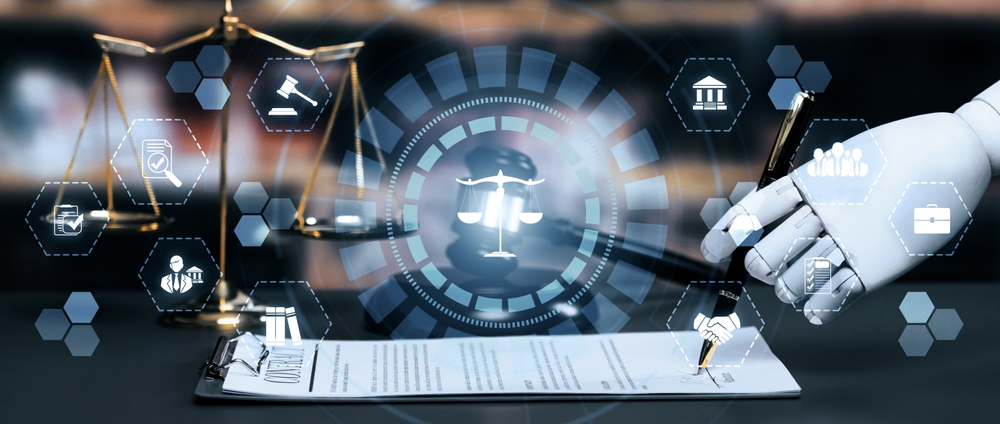The New York Times (NYT) levelled charges against Microsoft and OpenAI, alleging unauthorized usage of the content in training artificial intelligence bots. The lawsuit argues that the unlawful use of content threatens journalists’ work.
New York Times Sue Tech Giants Alleging Copyright Infringement
The lawsuit filed by NYT features a copyright infringement lawsuit targeting the artificial intelligence (AI) sector. Uniquely, a legacy media platform files the case, the New York Times, accusing ChatGPT creator OpenAI of infringing copyright rights, thus threatening the sustainability of journalism.
A statement by NYT on Wednesday, December 27, indicates that the media outlet sued a lawsuit alleging the Sam Altman-led OpenAI unlawfully utilized copyrighted content in training AI chatbots. The plaintiff alleges the conduct by the Microsoft-backed OpenAI hinders it from executing its journalism work.
The lawsuit references the provision in the US Constitution and the Copyright Act to back its argument for NYT’s original journalism. The plaintiff illustrates that Microsoft’s Bing AI captures verbatim excerpts using the NYT content.
The plaintiff submits that the move by the defendants’ chatbots to offer Times content without the requisite permission and authorization undermines and destroys NYT’s relationship with the readers. The plaintiff added that the defendants’ tools deprive the media outlet of subscriptions, licensing and advertising alongside the affiliate revenue.
New York Times move echoes the concerns raised by other media companies accusing AI-powered chatbots of infringing copyrighted content.
New York Times Lawsuit to Redefine AI and Copyright Infringement Tussle
The lawsuit echoes claims advanced by the New Media Alliance in November that the AI-powered chatbots were illegally stealing copyrighted content. It further disclosed that developers behind the AI chatbots are snatching revenue, data and users away from news publications. Ultimately, the AI chatbot developers threaten to eradicate original journalism.
The argument advanced by the New York Times garnered the attention of intellectual property (IP) and AI attorney Cecilia Ziniti. She described the lawsuit as the best case yet to claim that generative AI orchestrates copyright infringement.
Ziniti illustrated a critical argument in the lawsuit against Microsoft and OpenAI, namely, the fact that the www.nytimes.com website carries with it a highly proprietary source trailing Wikipedia and the US patent documents database.
Ziniti noted that the case highlights the existence of the slightest variation in a few words between GPT-4 output and the original content accessible from NYT.
In April this year, the plaintiff disclosed reaching out to the duo – OpenAI and Microsoft. It intended to highlight the IP concerns and pursue the possibility of reaching an amicable resolution. The New York Times admits that the effort proved futile, leaving the lawsuit inevitable.
Zinit illustrated in the subsequent tweets that she has, in the past decade, paid subscription fees to access NYT and NYT Food content. She admits to discontinuing the paid subscription, alleging that AI Chatbot, such as ChatGPT, offers access to articles and free recipes.
The legal expert in IP matters considers the case as beaming with the potential to become the watershed moment for the entire AI and copyright saga.
The lawsuit triggered the creation of the OpenAI developer forum, with the reactions captured in the thread portraying mixed reactions. A section of the users desired failure in the NYT claims, while others termed it an exciting and worthy shot for the legacy media outlet.
The charges levelled against OpenAI by the NYT join many cases before the court alleging infringement from the AI models.
OpenAI Faces Lawsuit Filed by Author’s Guild
In September, the US-based Author’s Guild acted on behalf of writers to initiate a class-action suit against Altman-led OpenAI, claiming the ChatGPT creator misused copyrighted material when training the AI models.
OpenAI joins peers facing similar lawsuits. Such is evident in the Universal Music Group suit against Anthropic AI, filed in October. The Group submitted that the Claude 2 creator orchestrated many copyrighted works.
Universal Music Group accuses the firm, co-founded by a former OpenAI research team, of infringing copyrighted content and material, such as lyrics related to musical compositions already under the ownership and control of their publishers.
Artists’ Group Expand Case Against AI Companies
A similar case features one initiated by an artists’ Group accusing Midjourney, Stability AI, and DeviantArt of utilizing their art pieces in training the image-generating AI models. The class-action lawsuit initially suffered when a US judge struck it down, alleging inadequate evidence. The plaintiffs expanded and amended the charges by integrating more detailed allegations.
The case filed by the New York Times is an interesting legal battler, particularly with OpenAI declaring plans to meet legal costs incurred by business-tier ChatGPT users to face charges over copyright infringement.
Editorial credit: Ascannio / Shutterstock.com
